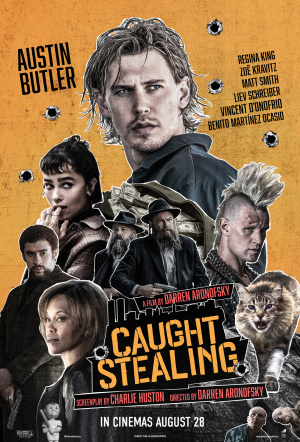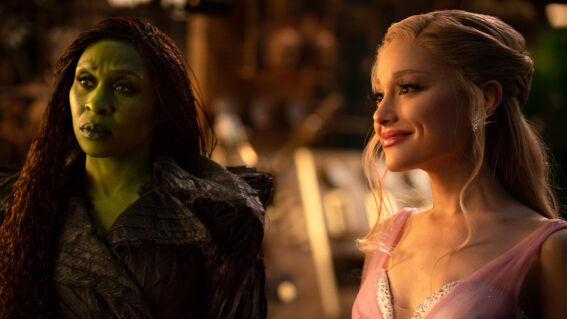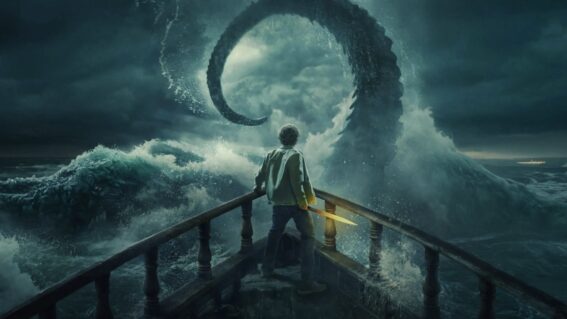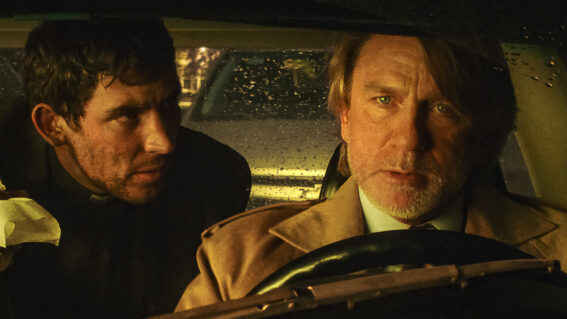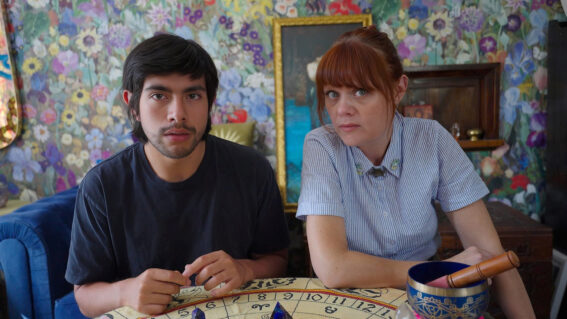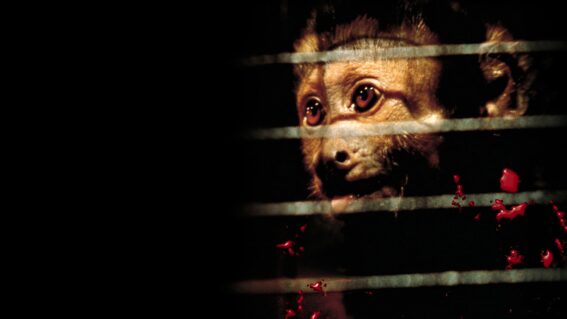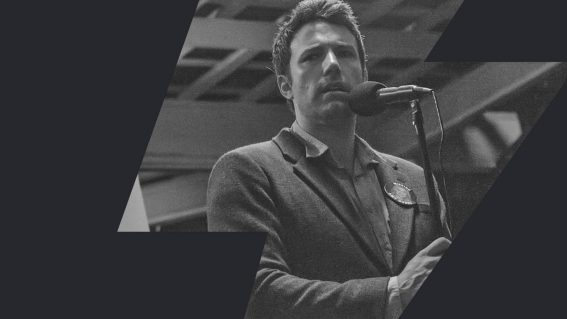Caught Stealing and the massive influence of 2017’s Good Time
Darren Aronofsky’s latest crime caper may be rooted in the ’90s, but it sharply reflects the scuzzy mirror of a 2017 cult classic.
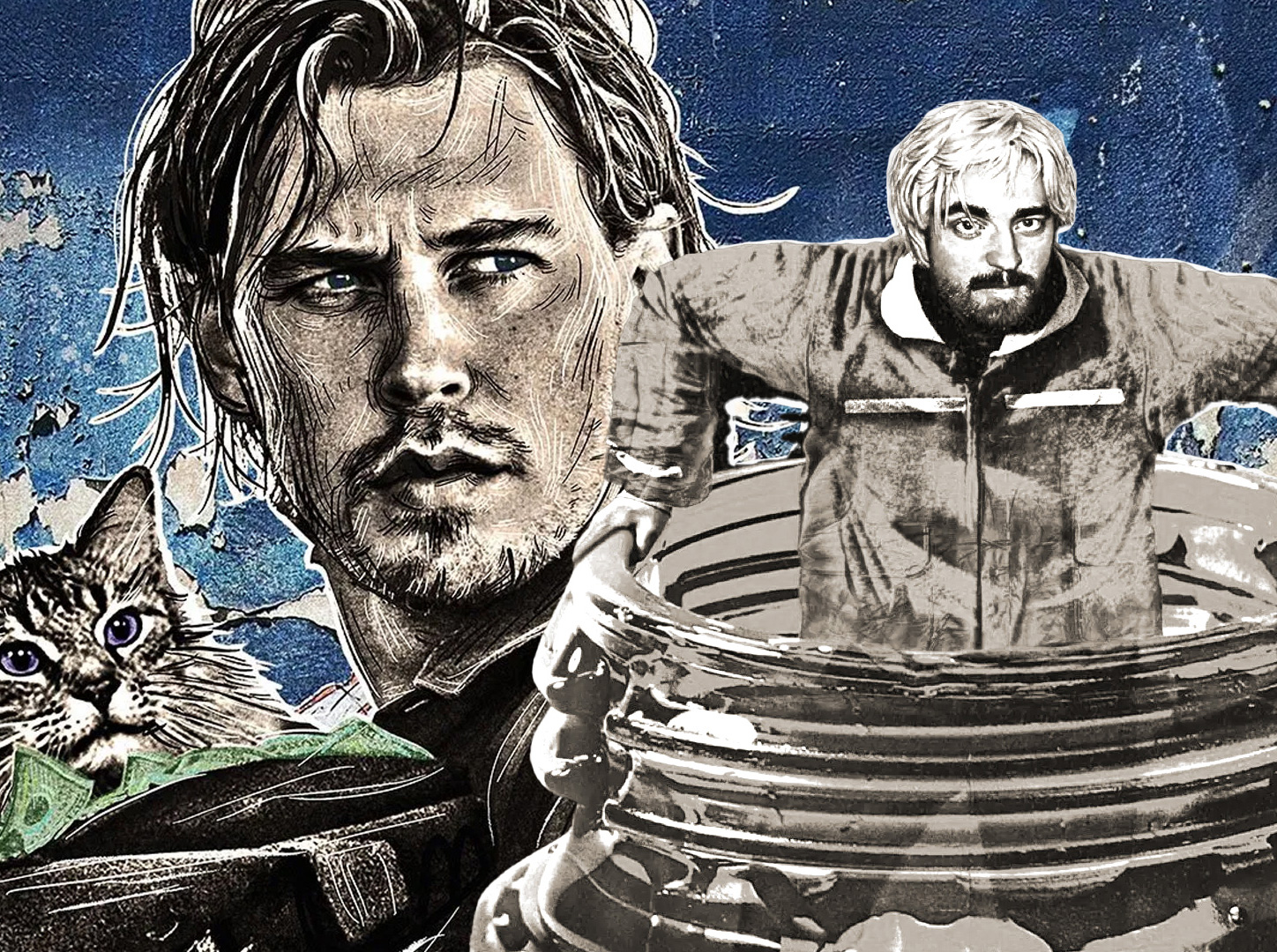
Darren Aronofsky clearly fancied a change of pace: after securing an Oscar for his lead actor Brendan Fraser in The Whale, a chamber piece drama about prejudice, the director of Requiem of a Dream and Black Swan opts with Caught Stealing for a larger geographic canvas – leaving behind the single apartment setting of The Whale for multiple New York City boroughs – and a more commercial scale.
Caught Stealing stars the charisma atom bomb Austin Butler as Hank Thompson, a washed-up, former baseball prodigy whose dreams of going pro were shattered – along with his knee – in a terrible car crash. Over a decade later, it’s 1998 and Hank lives in Rudy Giuliani’s New York, where he works in a dive bar for his ponytailed boss Paul (Griffin Dunne) and toys with getting serious with his paramedic girlfriend Yvonne (Zoe Kravitz). But when his cockney punk rocker Russ (Matt Smith) asks him to look after his cat, things go belly up; after Hank gets beaten up by Russian gangsters, he soon has to fend off a no-bullshit cop Roman (Regina King), two Hasidic gangsters Shmully and Lipa (Vincent D’Onofrio and Liev Schreiber) and Colorado, a snazzy Puerto Rican enforcer played by Bad Bunny.
You may have noticed in that brief rundown a few callbacks to intense, street-level New York films: Griffin Dunne starred in Martin Scorsese’s paranoid Soho comedy After Hours; New York paramedics took centrestage in Scorsese’s wired and frazzled Bringing Out the Dead; Adrien Brody played an Anglophilic punk rocker in Spike Lee’s Summer of Sam. That film was set in ‘77, it came out in 1999, around the same time as Hank’s misadventures. But these references are surface dressing, and do not point to the film that majorly influenced the scuzzy, scrappy, foul-mouthed chaos of Caught Stealing.
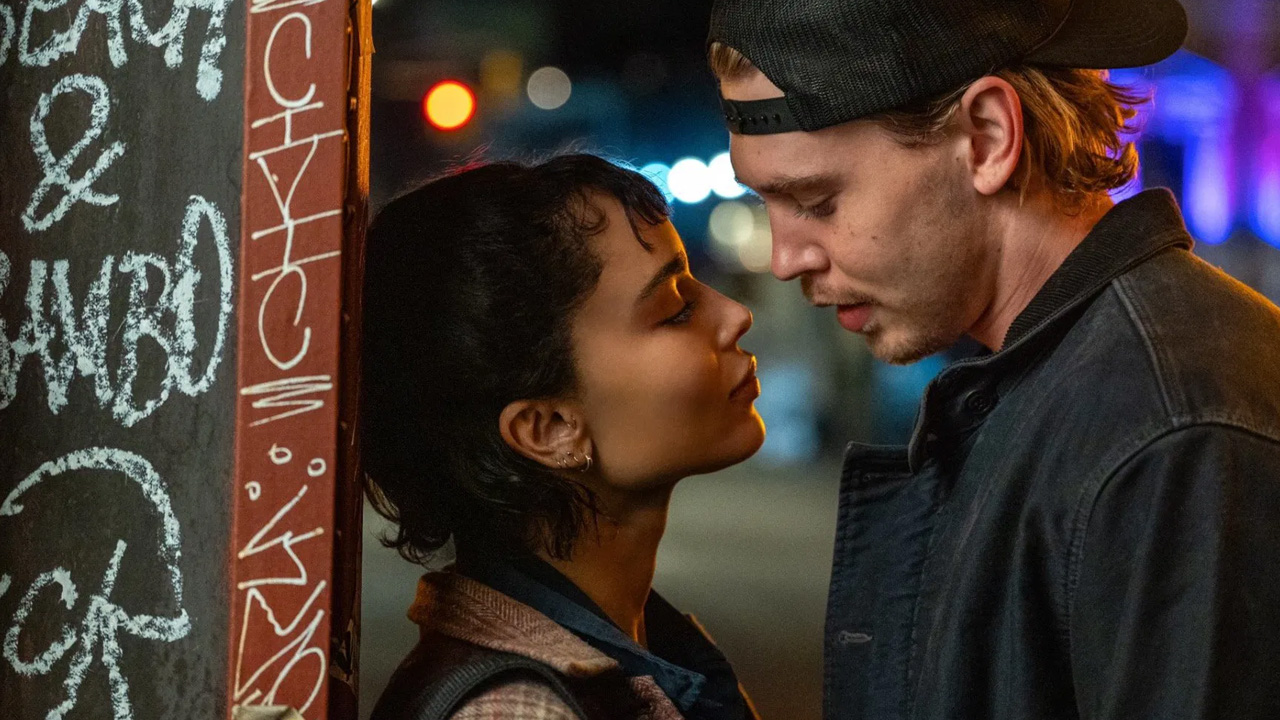
Caught Stealing
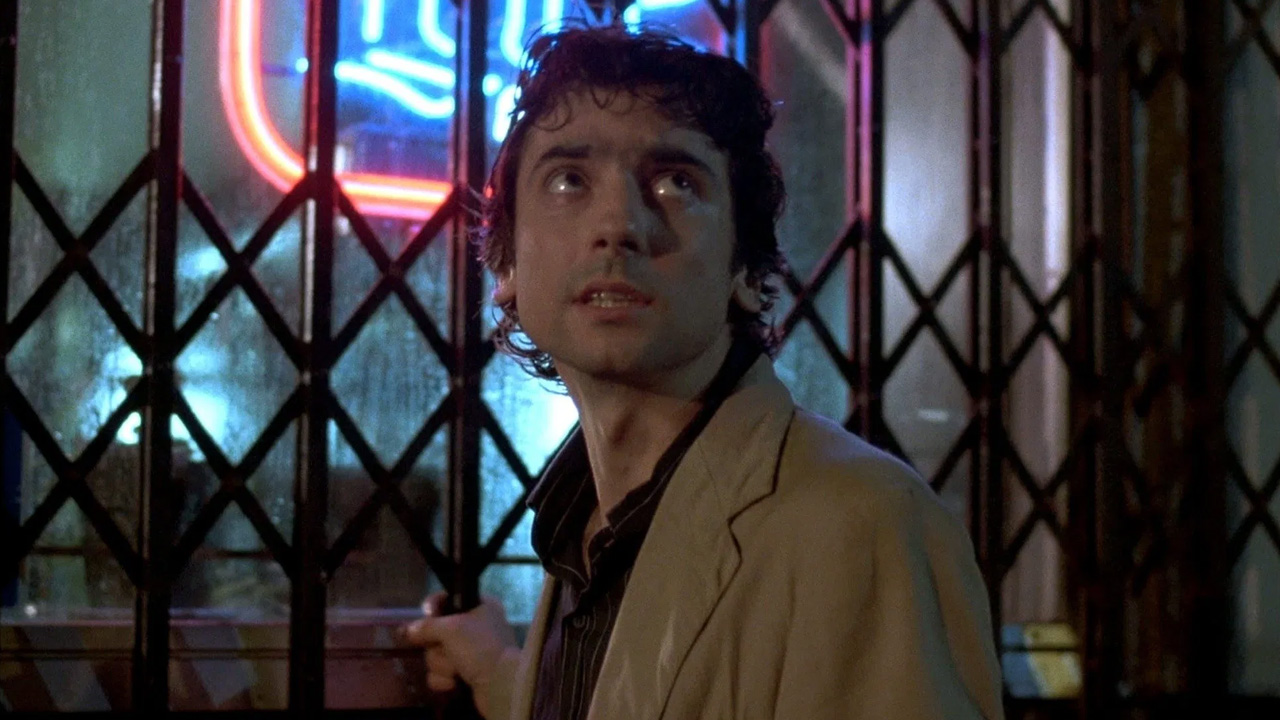
After Hours
2025 is a big year for the Safdie Brothers: the brothers behind Uncut Gems have broken their directorial partnership to helm different A24 pictures (Benny’s The Smashing Machine; Josh’s Marty Supreme), but if they take a moment out of their busy schedules to cast an eye over Aronofsky’s latest, they’d agree that their frenetic neo-noir Good Time – a 2017 crime film tracing the messy, painful fallout from a failed robbery – has become one of the most influential films of our current moment.
Good Time stars Robert Pattinson as Connie, a manipulative and unsuccessful criminal who whisks his disabled brother Nick (Benny Safdie) away from therapy to rob a bank – when Nick is taken into custody, Connie treks across Flushing, NY to pressure girlfriends, strangers, and criminal associates for cash and protection. Urban New York is unforgettably textured in Good Time – Connie encounters an incredible diversity of exhausted, anxious personalities in his propulsive, stylized quest, and the pulpy thriller material is complicated with thorny reminders of the inequality coursing through New York City’s veins. Not that Connie cares – he tells lies, dons sympathetic disguises, and makes himself comfortable in other people’s homes so he can better his immediate circumstances.
Good Time led to Uncut Gems, starring Adam Sandler as a diamond district gambler who compulsively stacks the odds against himself in the face of financial and physical ruin. Something about the livewire edge, scuzzy characters, and rhythmic anxiety of these films has invaded the minds of filmmakers across the world – seven years on from Good Time’s unambiguous Bad Vibes, a fleet of directors and actors have tried their hand at thrillers with ticking clock anxiety, a grounded social perspective, and protagonists crawling back from having the worst luck in the world.
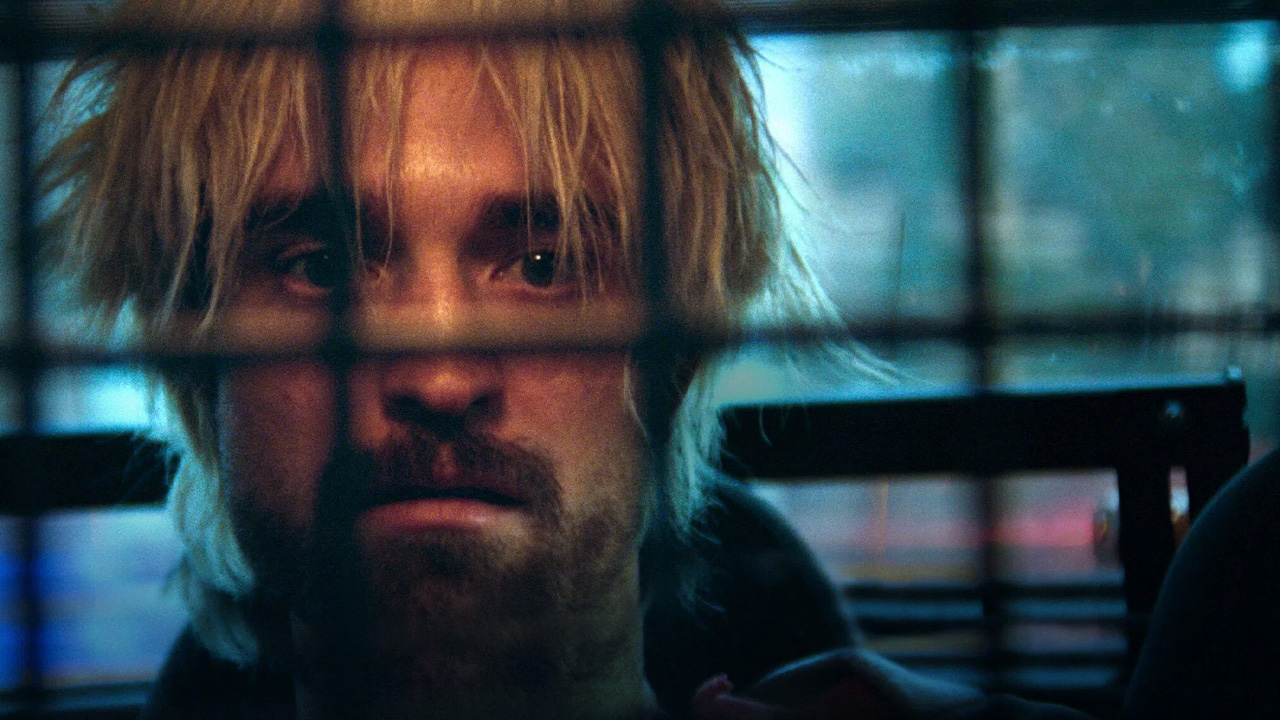
Good Time
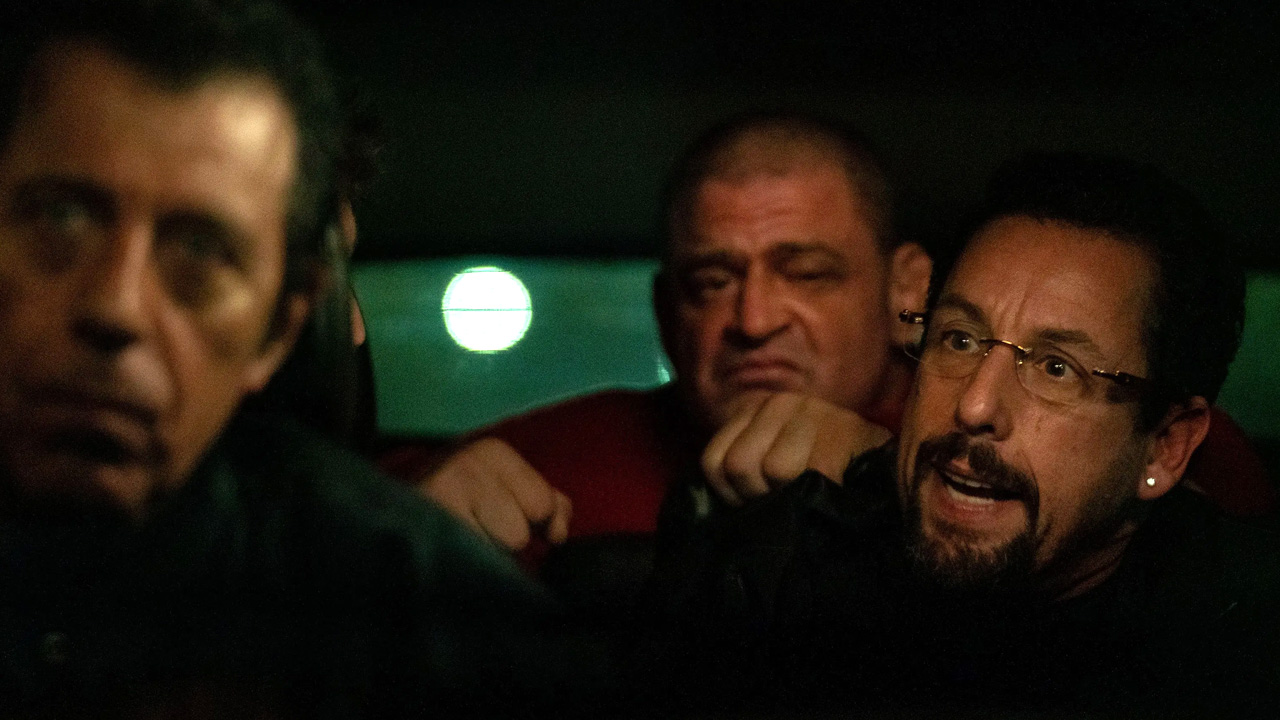
Uncut Gems
In 2017, indie distributors like A24 and Neon, who had ambitions of buzzy, online-fuelled mainstream acclaim, were just warming up: before long, they were chasing the highs of Good Time and Uncut Gems by distributing the Twitter-thread crime comedy Zola and the Cinderella story gangster romp Anora – which shares with Caught Stealing a brief, hectic visit to Brighton Beach. Along the way, independent studios and international filmmakers offered us Emily the Criminal (Aubrey Plaza scamming her way out of student debt), Full Time (a single mother and hotel maid traverses a hostile modern Paris, trying not to lose her financial stability), and very recently Netflix’s Night Always Comes, where Vanessa Kirby has a single night in Portland to save her family from eviction.
It’s unfair to say these films originate with Good Time – all of which opt for a female perspective that the Safdies often keep to the sidelines (at least, since their addict drama Heaven Knows What) – but their shared conflicted morality, visceral environmental detail, and naturalistic tension put them in a still-emerging tradition of larger-than-life characters resisting the walls closing in on them that Good Time announced with singular clarity and intensity.
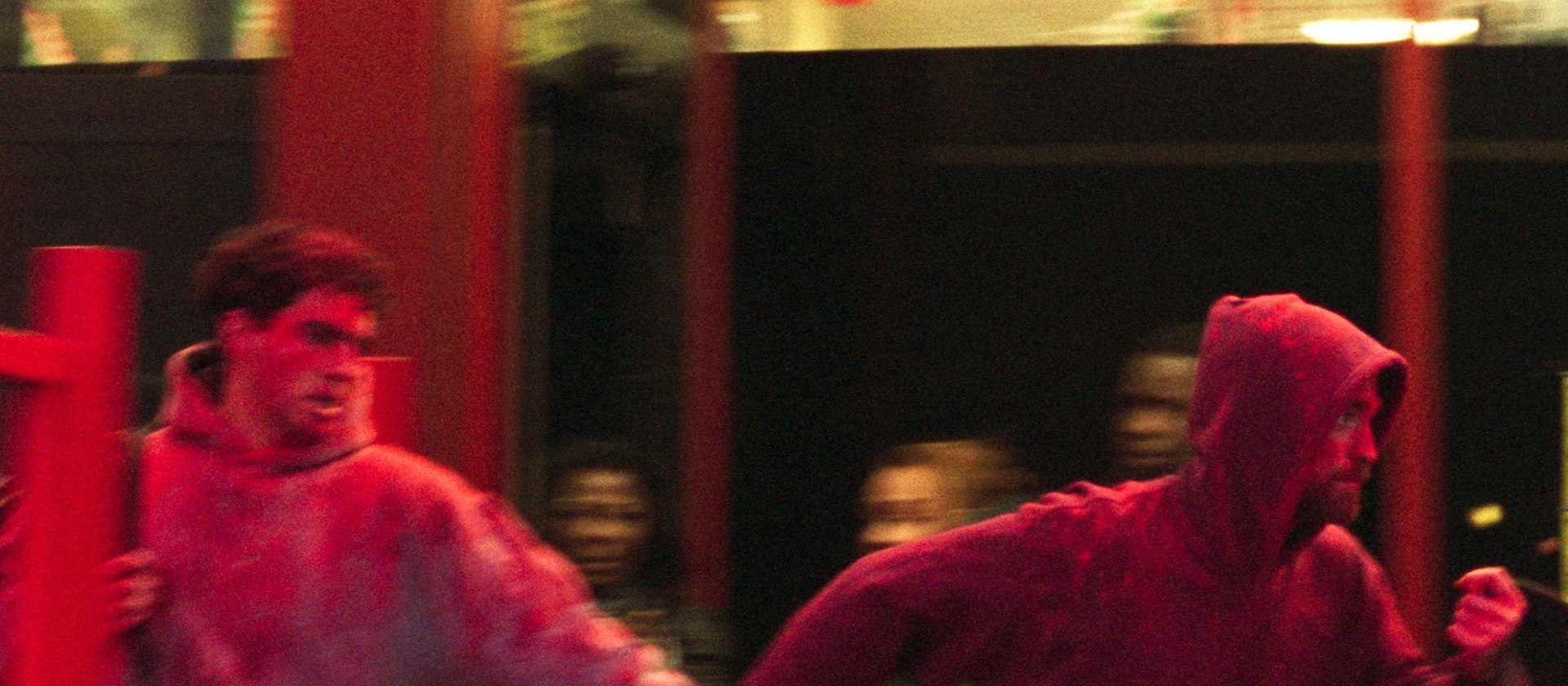
Caught Stealing is a commercial project, and as a result, Aronofsky has sanded Good Time’s irregularities into something more palatable and digestible. The caricatures are broader, the crime story is pulpier and driven by Hollywood convention, and while the style is bold and impactful, it lacks that furtive immediacy of the Safdies’ urban nightmare simulators. But it’s not hard to see why Austin Butler – whose star is shining so bright that any given project needs him more than he needs it – would dive headfirst into Hank Thompson’s misadventures.
The reason why Good Time copycats have become a trend is clear and admirable – it is remarkably exciting to see hapless, imperfect nobodies run across a city to fix a problem that wasn’t entirely their fault to begin with. If that type of spiralling, unpredictable drama isn’t pure cinema, what is?





